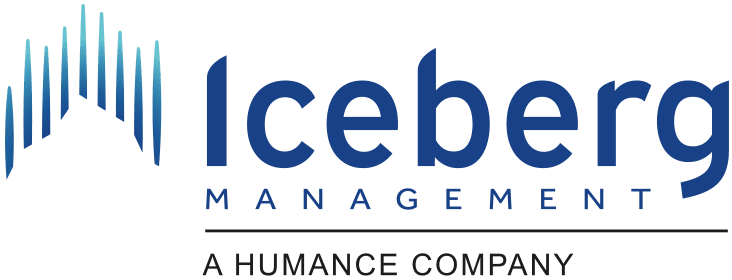
Employee Coaching & Training
April 20, 2021
Sleep: a secret weapon to increase productivity!
The last year was difficult for everyone. We have been forced to rethink our professional lives, our hobbies, our physical activities, our nutrition, and our lifestyles in general. Every aspect of our lives has been changed and adapted to our new reality linked to the health crisis.
The lack of certain healthy habits that were previously ingrained in our routines has major impacts on our health, our well-being and even our productivity at work. However, we have in our possession a secret weapon that we often undervalue, and which acts directly on these elements: sleep.
The impact of sleep
Studies[1] show a clear and direct correlation between lack of sleep and the number of errors produced during the day. A person who has 6 hours or less of sleep per night is prone to making 10 mistakes per day. A cumulative decrease in cognitive performance is observed after 14 consecutive days for people with a sleep duration ranging from 4 hours and 6 hours per night. On the other hand, someone who has 8 hours of sleep for 14 consecutive days is subject to making between 1 and 2 errors per day. Sleep therefore comes as a reinforcement to help us be at our best in our daily activities.
How to develop restful sleep
Sleep helps regenerate our body and mind. It is dependent, among other things, on two other important activities: what we eat and our level of physical activity. These directly influence our propensity to have truly restful sleep[2]. Here are some tips that you may find useful:
- Pay attention to what you eat and drink. Is it nutritious food and drinks that give you energy or rather empty calories?;
- Get 30 minutes of physical activity, such as walking, every day. Do not hesitate to combine one-on-one meetings in the office with a walk outside. The nice weather is coming, what better way to adopt this practice;
- Establish a sleep routine that you follow every night. Many people have developed the habit of taking a hot bath and reading a book before falling asleep. This relaxes the body and eliminates the presence of blue light given off by screens which delays our natural sleep cycle;
- Create a regular work / rest rhythm that will promote your recovery and sleep time. You will then eliminate the “yo-yo” effect between getting up and going to bed;
- Talk to your doctor if you experience persistent sleep disturbances.
Sleep helps reduce errors in the long run, avoids wasting time and energy, and increases our well-being. It should be seen as an effective strategy to maintain your productivity!
By Lyne Desrochers, M. Ed, CRHA, ACC – Professional coach and trainer
RH blog Editor – Iceberg Management
[1] Hans P.A. Van Dongen, PhD, Greg Maislin, MS, MA, Janet M. Mullington, PhD, David F. Dinges, PhD (2003). “The Cumulative Cost of Additional Wakefulness: Dose-Response Effects on Neurobehavioral Functions and Sleep Physiology From Chronic Sleep Restriction and Total Sleep Deprivation”, Sleep, Vol 26, No2.
[2] Thiébaux, Anaïs (19 mars2020), Sommeil réparateur : phase, bienfaits, comment faire ?, Le journal des femmes – santé. https://sante.journaldesfemmes.fr/fiches-sante-du-quotidien/2625047-comment-avoir-sommeil-reparateur-bien-dormir-bienfaits-quelle-phase-heure/#:~:text=Un%20sommeil%20r%C3%A9parateur%20se%20d%C3%A9finit,couche%20et%20on%20se%20r%C3%A9veille

Lyne Desrochers M. Ed, CPHR, ACC
Professional Coach and Trainer
Plan a connection callAdvice Centre
Discover more inspiring content
Find out how our methodology has transformed companies from different sectors. Each article is proof of our expertise.

Organizational Structure
Zoom fatigue: Do you recognize it?
The sales of Zoom saw a 370% increase between 2019 and 2020. Dr. Andrew Franklin believes Zoom fatigue arises from continuous partial attention.

News & Editorials
Cohort T for Transformation comes to life!
Iceberg Management brought together more than 20 elf-employed workers and micro-entrepreneurs in its first two groups of Cohort T for Transformation.

News & Editorials
Cohort T for Transformation
A unique coaching and co-development path specially offered to self-employed workers : Cohort T for Transformation

Culture and Health Wellness
The virtual employee experience
COVID-19 is forcing us to drastically redefine the way we work. It is time to wipe the slate clean and rethink the employee experience.

Organizational Structure
Physical health: The evil side of teleworking
Specialists have warned of risks to mental and physical health from teleworking. Employers must encourage physical activity to support their staff's well-being.

Employee Coaching & Training
The five dysfunctions of a team
The 5 dysfunctions: lack of confidence, fear of confrontation, lack of commitment, lack of accountability, and indifference to results.

Employee Coaching & Training
Transform your employees into a learning engine!
In a fast-changing world, employees often struggle to find time for learning and development due to limited resources. Look into co-development opportunities!

News & Editorials
Black History Month
Black History Month: celebrate achievements, promote diversity, and educate on social issues. Ideas for organizations to celebrate and support.

News & Editorials
Covid-19: Questions and Answers on Vaccination
We know that the key to getting back to normal life depends on vaccination. As an employer, what do you need to know about vaccination?

Employee Coaching & Training
Mentor or mentee, two winning roles
As we set our personal and professional goals, mentoring deeply benefits both the mentor and mentee.

Organizational Structure
Public recognition and organizational surveys: the two go hand in hand!
Organizational surveys: are either we are doing too many or not enough. And you, how often do you survey your employees?

Employee Coaching & Training
We feel inSPIREd at the beginning of the new year
I therefore present to you, for this exact purpose, the SPIRE model, with which you and the members of your team can take the time to reflect.
